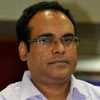After a brief pause, a section of the news television goes back to the made-up mythologies and superstition to win the TRP race
After a break they are back. aliens, ghosts, cobras, witches and haunted houses have occupied a lot of space on a section of news channels. Thanks to modern technology, TV editors can create news on editing machines. It is not that professional editors are not around, but they too are less bothered about checking facts and sticking to truth. Their primary duty, it seems, is to deliver television rating points (TRPs).
After a lot of hue and cry, news channels, mostly Hindi ones, had decided to stop such dubious content. But when one channel recently broke the ‘rule’ and got high TRPs, others had no option but to join in. Ajit Anjum, managing editor of India TV, wrote in a Facebook post on December 5: “Ghosts/phantoms/suspense/thriller/witches and fairies are back on news channels. While someone has gone in search of ghosts, someone is busy finding wonderful, unimaginable and incredible stories. Someone is looking for a phantom in some old fort during midnight, someone is roaming in the world of mysteries… Competition is tough. We are again in the same trap… All for TRPs. As one channel got ratings from mystery, everybody started following the same line.”
This trend goes against the spirit of the constitution. Article 51A(h) of the constitution says, “It shall be the duty of every citizen to develop the scientific temper, humanism, spirit of inquiry and reform.” But spreading superstition has become a 24x7 job for many news channels. Astrology programmes are a tried-and-tested formula to catch eyeballs. People like Nirmal Baba, known for advising viewers to eat samosa with green chutney or wear red clothes for a bright future, are always welcome there.
Recently, Karnataka chief minister Siddaramaiah suggested banning popular astrological shows on Kannada TV channels. But his government later denied any such plans. It, however, said the state was going to bring in effective laws to curb occult and superstitious practices. After the murder of writer and rationalist MM Kalburgi in August, activists had been pushing for the passage of the Karnataka Prevention of Superstitious Practices Bill 2013, but the state government is in no hurry.
If news channels bank on it, why would entertainment channels be left behind? Witches and black magic practitioners rule that segment too. In one soap opera, the protagonist is a naagin, or queen cobra. The Broadcasting Content Complaints Council (BCCC), an independent self-regulatory body set up by broadcasters, had received a number of complaints from viewers about such shows, leading to an advisory in December: “BCCC believes that any such unreasonable and unjustifiable representation could have serious repercussions.” It drew attention of the channels to some of the states that witnessed a rise in killings as a result of evils like witchcraft and other practices inspired from superstitions. The BCCC has issued 13 advisories since its inception in 2011—to no avail.
Media watchdogs like Press Council of India, Editors Guild of India, Broadcast Editors Association and News Broadcasters Association have failed to check this degeneration.
There is a growing feeling that if it is okay to do anything to catch eyeballs, then there should be some regulatory mechanism to oversee the content. Though the government should not be given a role in this, an authority comprising jurists, scholars and media persons could be given powers to take action against the channels that cross the lakshman rekha. At a time when there is a consensus on the accountability of judges of the supreme court, the accountability of the media should also be fixed.
The media should realise that misreporting, spreading superstition and sensationalism cannot be a guaranteed part of the freedom of expression and do a course correction.


